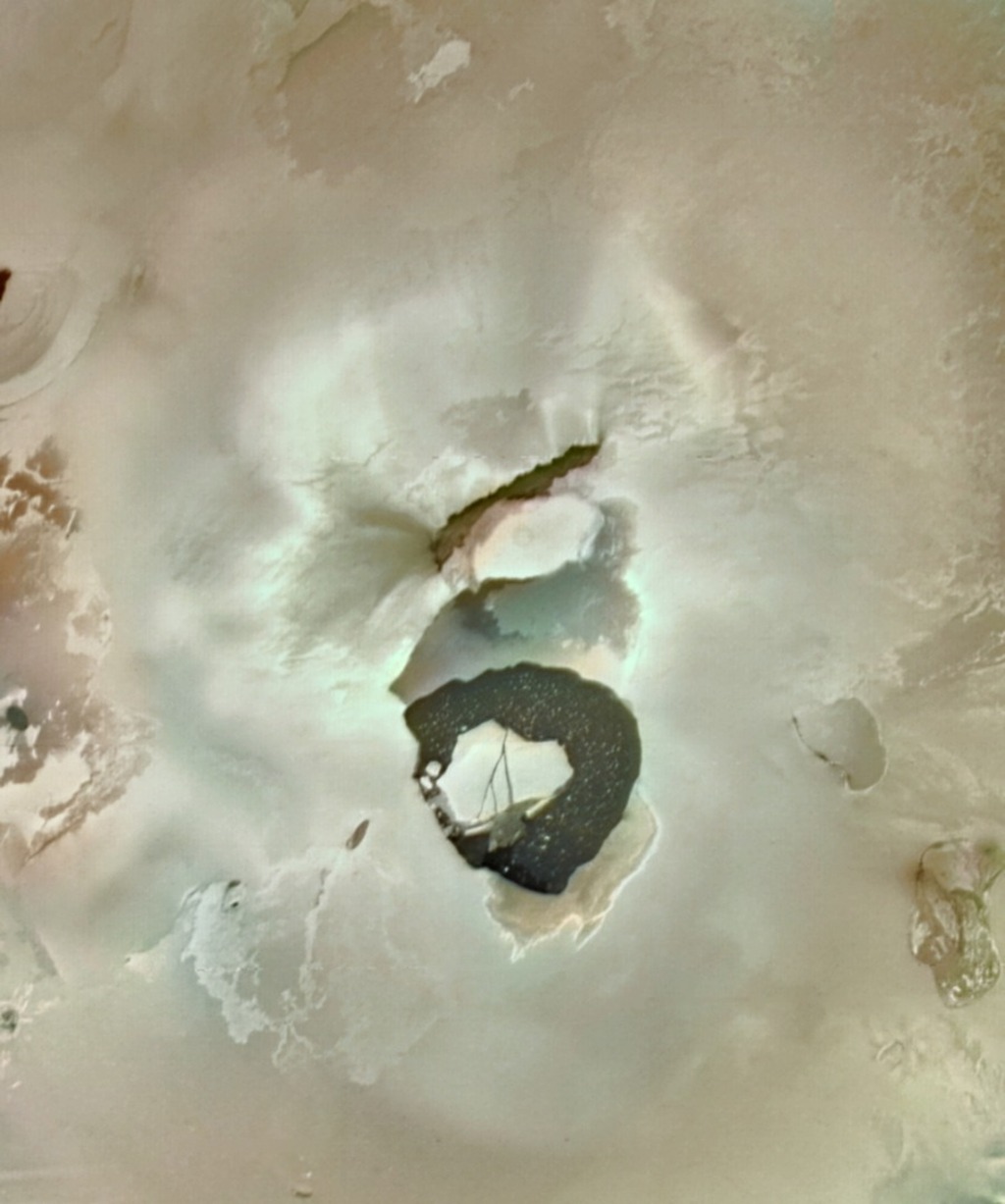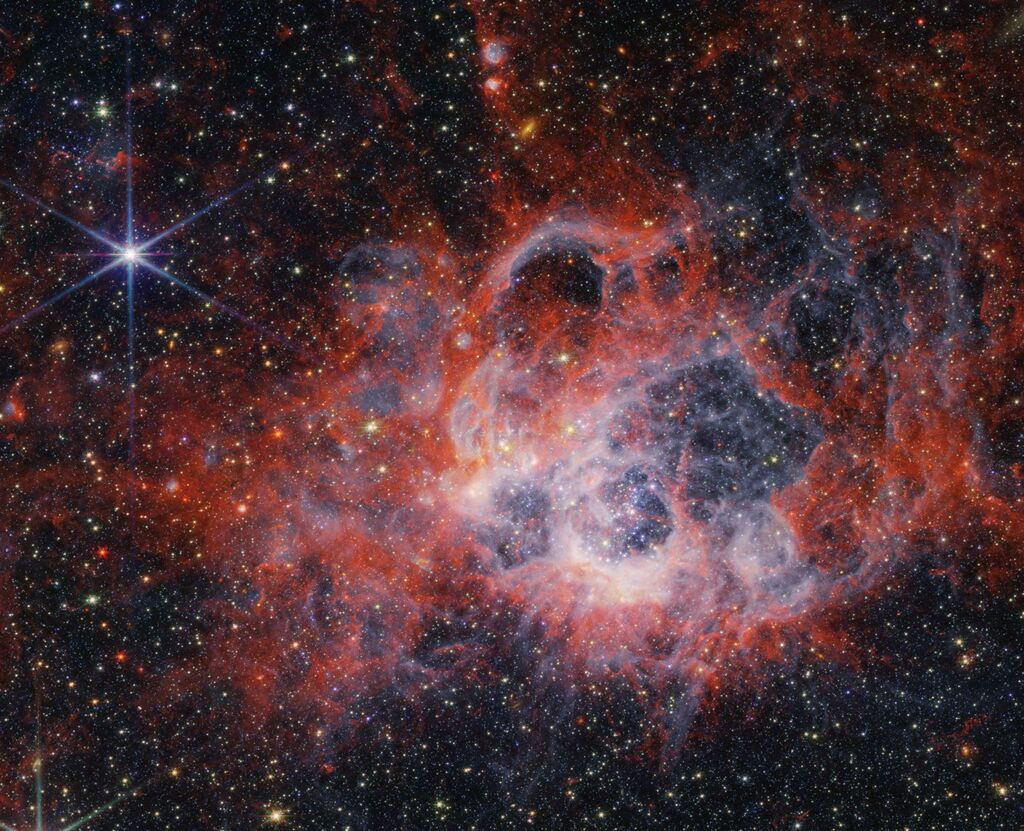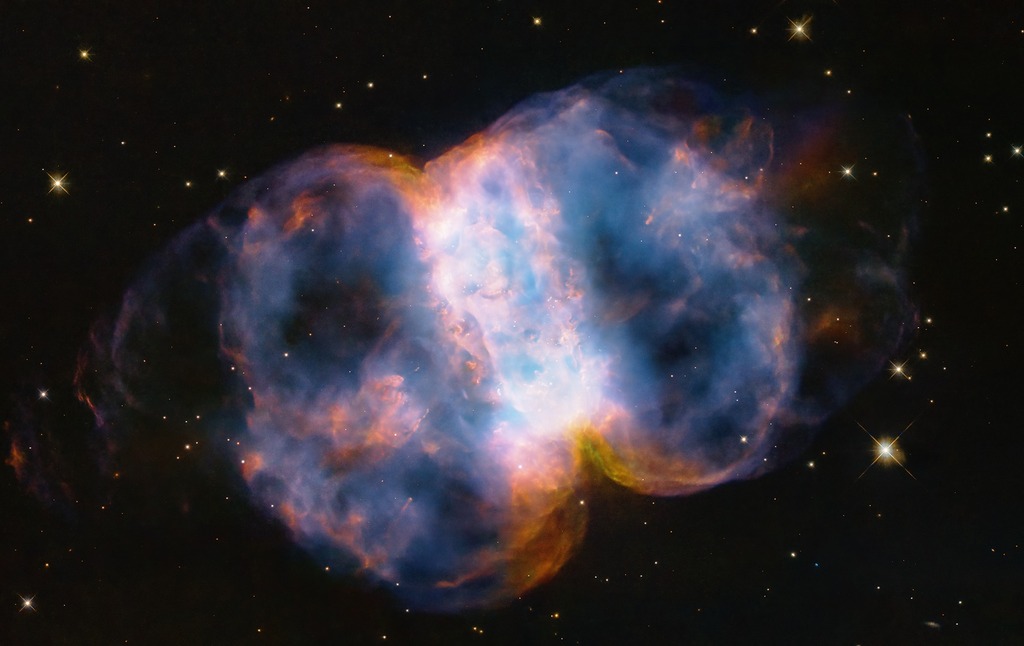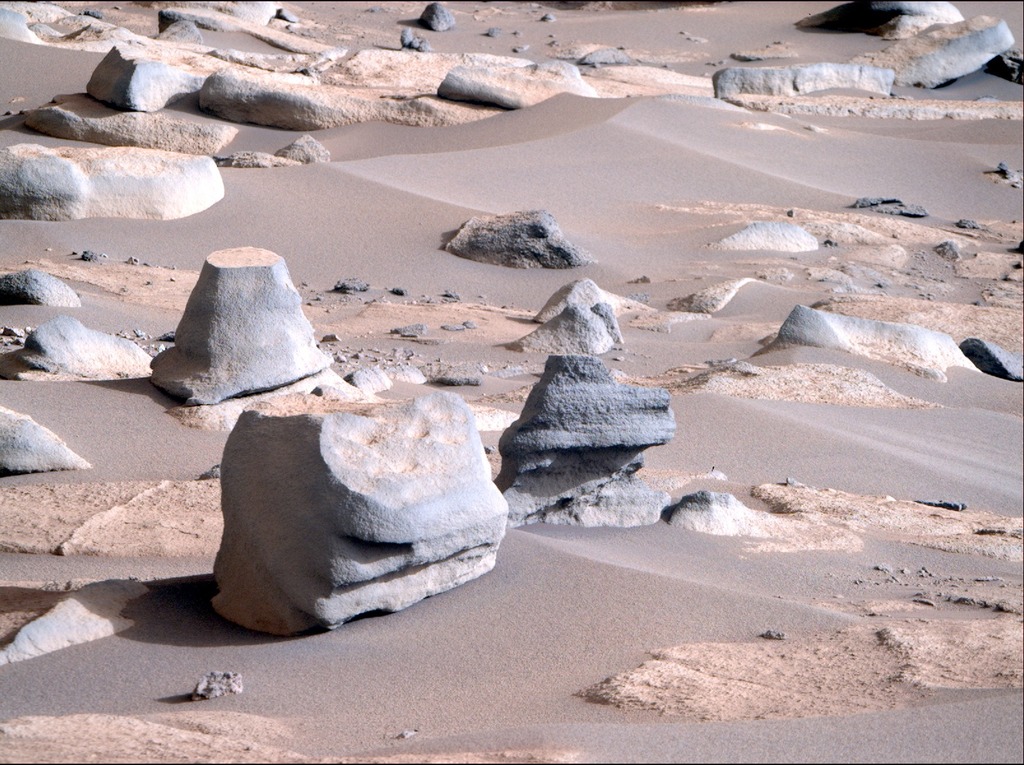
Planetary Picture of the Day
Week of April 22, 2024
This week brings two beautiful nebula and two intriguing worlds.
Monday, April 22, 2024

Loki Patera on Io
Io is the volcanic moon of Jupiter and is seen here in an image taken in 1979 by NASA's Voyager 1 spacecraft. Loki Patera is Io's largest volcanic depression at 202 kilometers in diameter and contains an active volcanic lake. Io's volcanism results from the gravitational forces being applied to the tiny moon by Jupiter on one side and the larger Galilean moons on the other. The result is a hot layer of magma beneath the surface that erupts through the relatively thin crust regularly.
Tuesday, April 23, 2024

Looking Beyond the Veil
In this image released on March 9, 2024, the NIRCam (Near-Infrared Camera) on NASA’s James Webb Space Telescope gives us a more detailed view of a well-studied but still mysterious region, NGC 604. The most noticeable features are tendrils and clumps of emission that appear bright red, extending out from areas that look like clearings, or large bubbles in the nebula. Stellar winds from the brightest and hottest young stars have carved out these cavities, while ultraviolet radiation ionizes the surrounding gas. This ionized hydrogen appears as a white and blue ghostly glow.
Wednesday, April 24, 2024

Little Dumbbell Nebula
In celebration of the 34th anniversary of the launch of NASA’s legendary Hubble Space Telescope, astronomers took a snapshot of the Little Dumbbell Nebula, also known as Messier 76, or M76, located 3,400 light-years away in the northern circumpolar constellation Perseus. The name 'Little Dumbbell' comes from its shape which is a two-lobed structure of colorful, mottled, glowing gases resembling a balloon that’s been pinched around a middle waist. Like an inflating balloon, the lobes are expanding into space from a dying star seen as a white dot in the center. Blistering ultraviolet radiation from the super-hot star is causing the gases to glow. The red color is from nitrogen, and the blue is from oxygen.
Thursday, April 25, 2024

Perseverance Views Some Interesting Rocks
Check out this fun rock garden at Jezero! NASA's Perseverance rover captured this image of some interesting Martian rocks on Sept. 17, 2023. The image was selected by public vote as an "Image of the Week" for the mission. It has been edited to bring out more detail.





